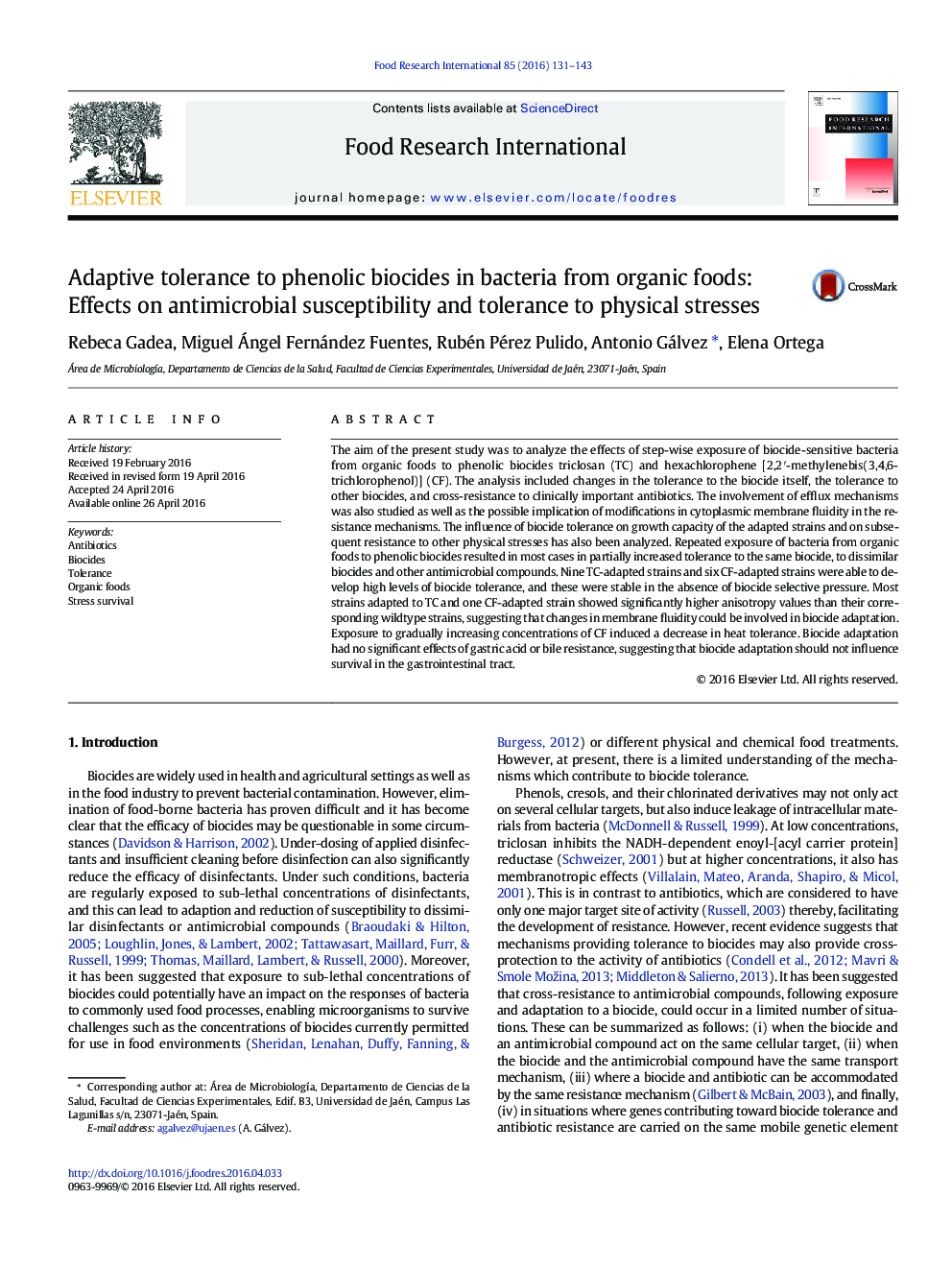| کد مقاله | کد نشریه | سال انتشار | مقاله انگلیسی | نسخه تمام متن |
|---|---|---|---|---|
| 4561048 | 1628463 | 2016 | 13 صفحه PDF | دانلود رایگان |
• Strains from organic foods were adapted to triclosan and hexachlorophene.
• Adapted strains showed cross-resistance to other biocides and antibiotics.
• Stress tolerance was not affected.
• Genetic determinants for efflux pumps were detected.
• Adapted strains showed changed membrane fluidity.
The aim of the present study was to analyze the effects of step-wise exposure of biocide-sensitive bacteria from organic foods to phenolic biocides triclosan (TC) and hexachlorophene [2,2′-methylenebis(3,4,6-trichlorophenol)] (CF). The analysis included changes in the tolerance to the biocide itself, the tolerance to other biocides, and cross-resistance to clinically important antibiotics. The involvement of efflux mechanisms was also studied as well as the possible implication of modifications in cytoplasmic membrane fluidity in the resistance mechanisms. The influence of biocide tolerance on growth capacity of the adapted strains and on subsequent resistance to other physical stresses has also been analyzed. Repeated exposure of bacteria from organic foods to phenolic biocides resulted in most cases in partially increased tolerance to the same biocide, to dissimilar biocides and other antimicrobial compounds. Nine TC-adapted strains and six CF-adapted strains were able to develop high levels of biocide tolerance, and these were stable in the absence of biocide selective pressure. Most strains adapted to TC and one CF-adapted strain showed significantly higher anisotropy values than their corresponding wildtype strains, suggesting that changes in membrane fluidity could be involved in biocide adaptation. Exposure to gradually increasing concentrations of CF induced a decrease in heat tolerance. Biocide adaptation had no significant effects of gastric acid or bile resistance, suggesting that biocide adaptation should not influence survival in the gastrointestinal tract.
Figure optionsDownload as PowerPoint slide
Journal: Food Research International - Volume 85, July 2016, Pages 131–143
